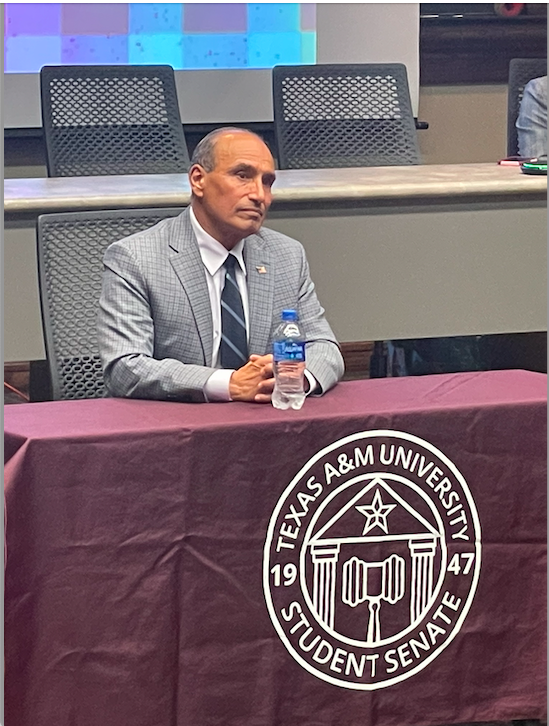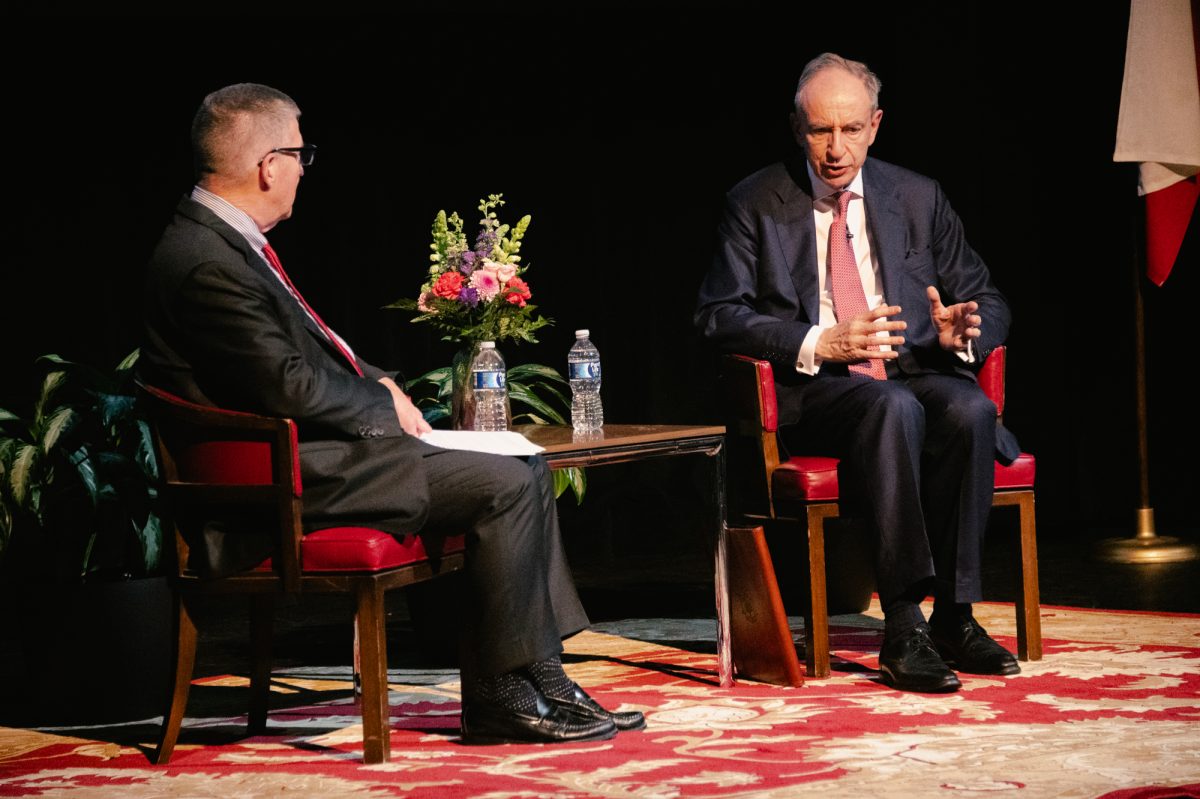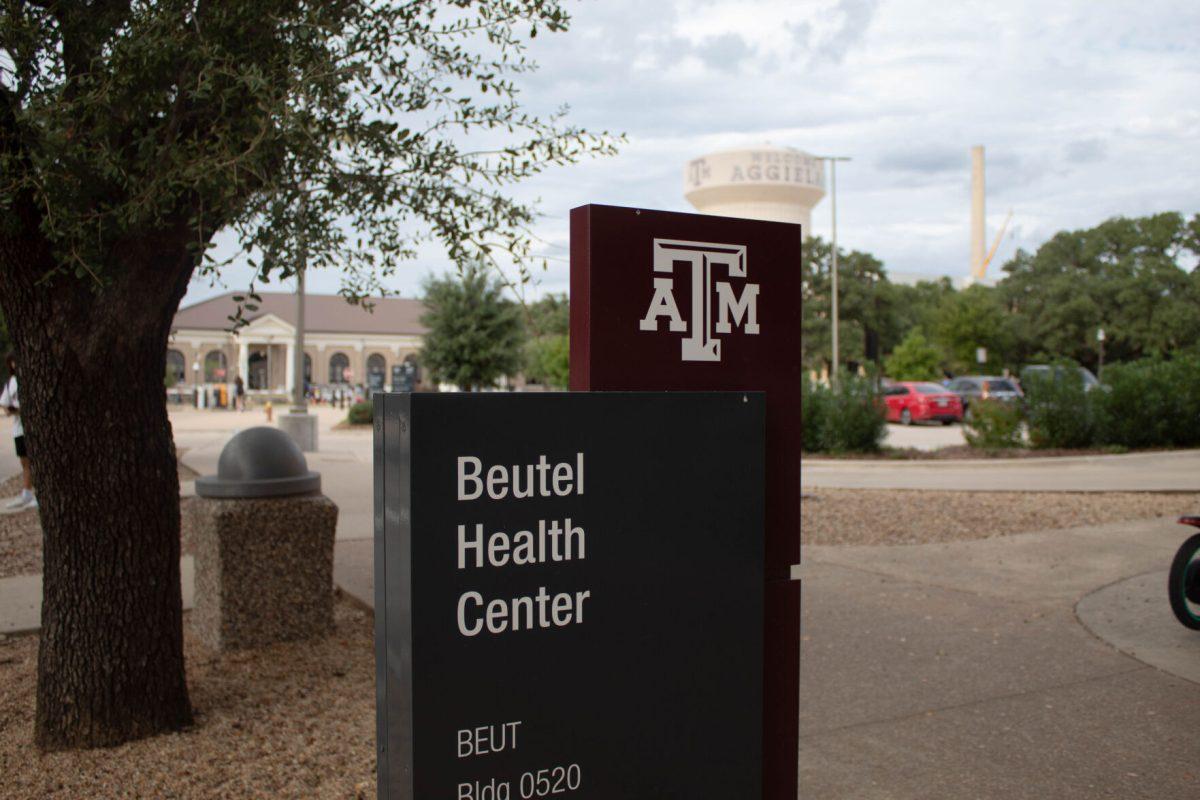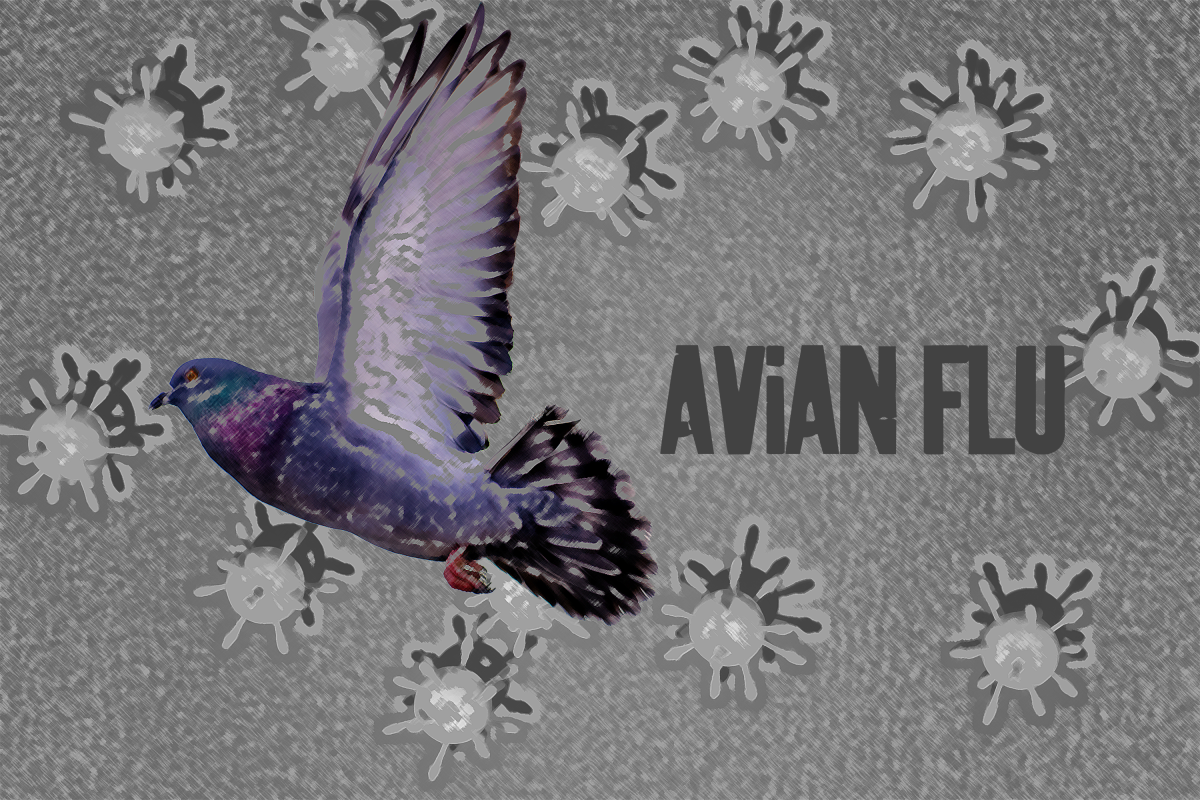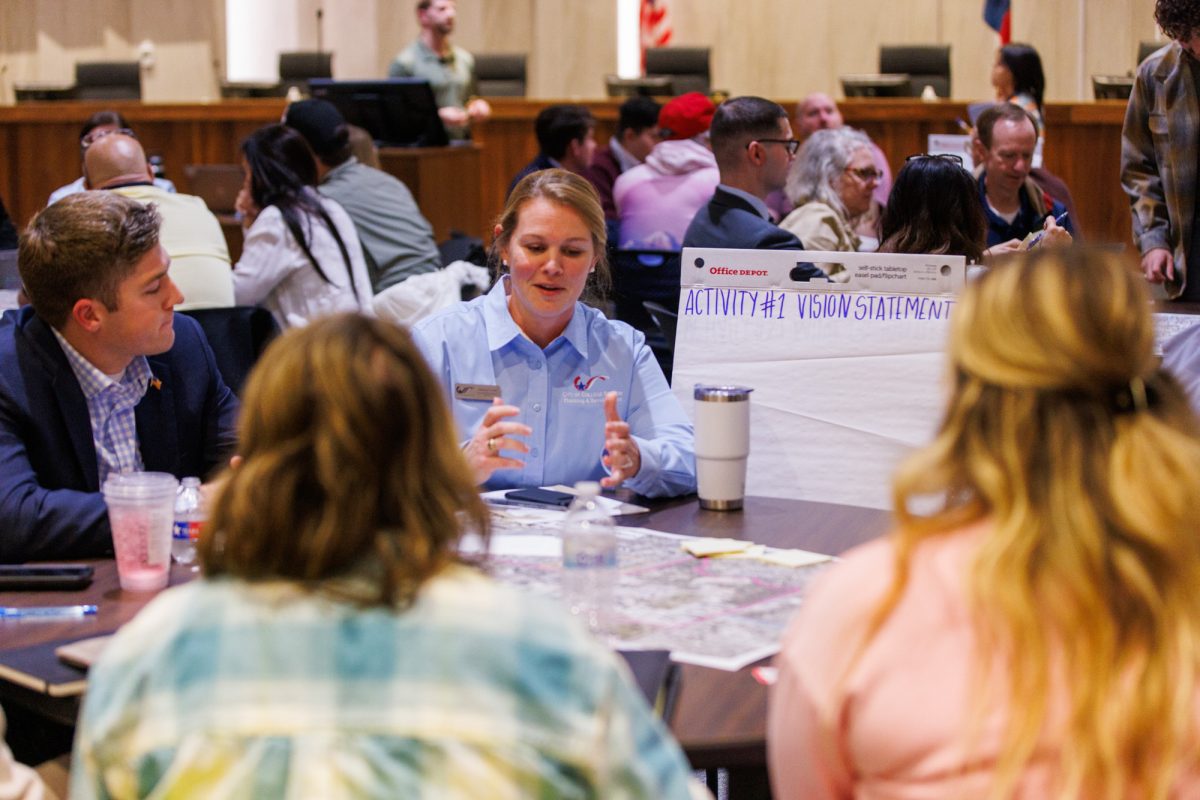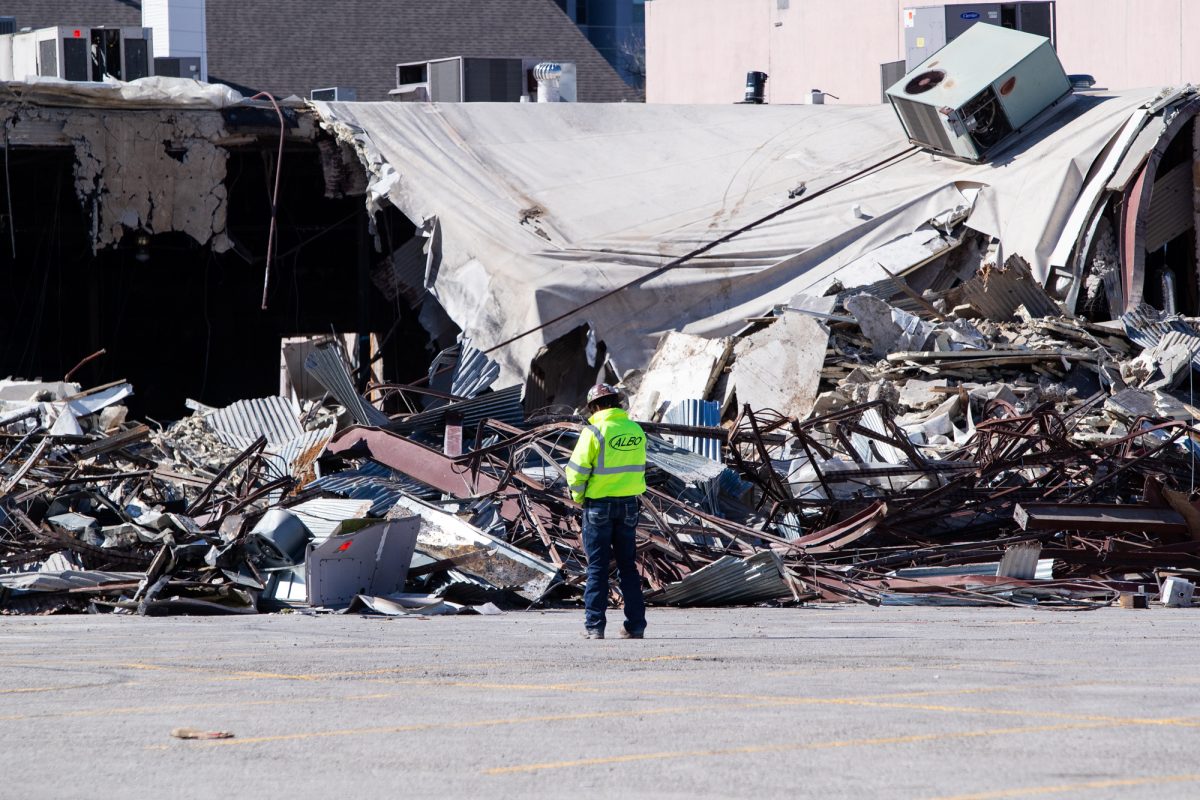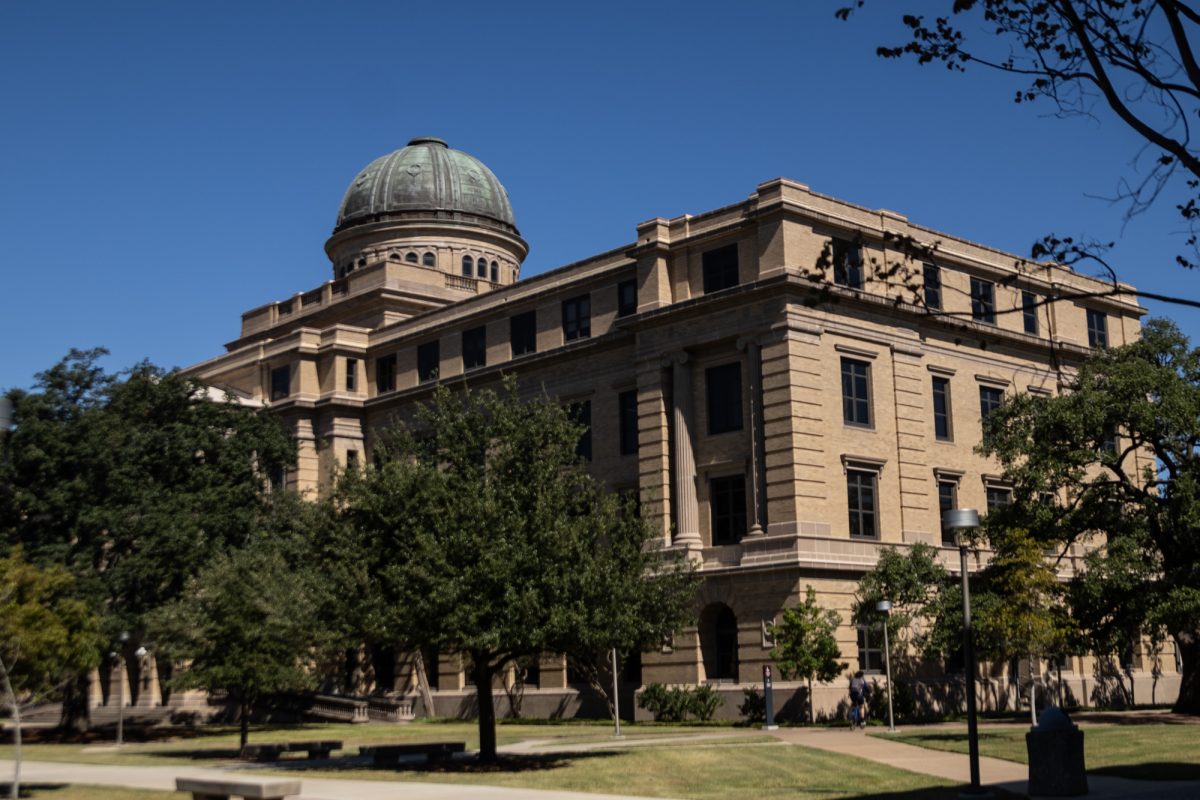Following up on a promise made by President M. Katherine Banks, Vice President for Student Affairs, or VPSA, Gen. Joe Ramirez came to answer questions from the Student Senate about recent changes at Texas A&M. Topics included administrative changes to Fish Camp and Draggieland, as well as university restructuring and the MGT report.
Starting off the question and answer session, Legislative Relations Committee chair Jessica Williams, a computer science sophomore, asked if the office of the VPSA ever disallowed Draggieland, as multiple members of Memorial Student Center Town Hall, the group that previously put on Draggieland, have attested.
Ramirez denied that his office had done this, instead saying he wanted a student organization to put on what had been a successful program, in order to redirect this money toward other programs.
“I didn’t disallow anything. I’ve seen the words forbid, disallow, ban. I didn’t disallow anything,” Ramirez said. “We looked at Draggieland. It had been successful for the previous two years from a financial perspective, and as a result, I made a decision to say, ‘OK, we’ve been successful, let’s let a student organization host it.’”
Later in the meeting, Carly Oldag, a poultry science junior, asked if the student organizations were ever consulted in this process and made aware they would be putting on Draggieland.
“Whether there was any communication with other student organizations, I don’t know,” Ramirez said. “I’d have to talk to … the director of the MSC about that, I don’t micromanage that.”
Yovanka Gonzalez, a management senior, asked Ramirez what the money Draggieland had made in the past two years was being put toward.
“I don’t know where that money got redirected,” Ramirez said.
Academic Affairs Committee chair Samuel Jefferis, a computer science senior, asked Ramirez why MSC Town Hall was not allowed to submit a proposal for Draggieland this year. Ramirez said he was not sure why the decision was made.
“Unless that had to do with the decision that I made about having a student organization fund Draggieland, I don’t know any reason about why they would not be allowed,” Ramirez said.
Ramirez was also asked about the status of Fish Camp, whether it is a student organization or a university program, which the Student Government Association recently released a report on.
Chair of the Diversity and Inclusion Committee Tiffany Ufodiama asked Ramirez why diversity was removed from the core values of Fish Camp. Echoing statements by President M. Katherine Banks, Ramirez said this change was made to bring the values of Fish Camp in line with the values of the university.
“I wanted to make sure that the mission statement matched the outcomes we wanted to achieve at Fish Camp,” Ramirez said. “As I looked at the values of Fish Camp, I said, ‘We needed to align them with the values of Texas A&M to ensure that we are focusing on the values of Texas A&M.’”
Williams also asked about the decision to remove “creating a universally accepting support system” from the Fish Camp mission statement. Ramirez said this change was made as this goal is not possible during the limited time of Fish Camp.
“Can we truly achieve a universally accepting environment in two days?” Ramirez said. “[The committee members] all agreed, probably not.”
It was not clear who this committee, which he made reference to several times throughout the session, was made up of from Ramirez’s comments Wednesday.
Jefferis asked further about the structure of Fish Camp, specifically why the Office of the VPSA was able to make changes regarding staff. Ramirez reiterated that Fish Camp is a university program backed by a student organization.
“While it is a student organization, it also has the responsibility, as a university program, to meet certain standards of safety,” Ramirez said.
Constituency Affairs Committee chair Victor Ferro, a mechanical engineering senior, asked why these decisions were made without consulting students. Ramirez said this was a mistake and something that will be changed in the future.
“If I could go back and do it again, I probably should have gotten [students] involved from the beginning,” Ramirez said. “The intent was to make sure that we are aligned with Texas A&M because it is a student organization that supports a university program.”
Asking more about this redefinition of Fish Camp as both a student organization and university program, Student Services Committee chair Fawaz Syed, a computer engineering junior, asked what the difference is between the university program Fish Camp and the student organization Fish Camp.
“Here’s the way I view it: It’s a shared responsibility,” Ramirez said. “From the time students arrive on campus … to the time they arrive 150 miles down the road in Palestine, Texas, at Lakeview, to the time they return back to campus … making all of that work, is [the VPSA’s] responsibility. The actual running of the camp, that’s all student led.”
Syed also asked when this change was made, and while Ramirez could not provide a specific time, he said it was a change of verbiage made during his time as VPSA.
Kieran Tillis, a chemical engineering junior, asked if there was any documentation of this split. Ramirez stated there was no written documentation.
“I haven’t created a document that shows a full separation,” Ramirez said.
After answering questions, Ramirez said he plans on coming back to Student Senate multiple times in the future, both to watch and to answer questions about student concerns.




